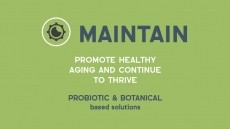Experts discuss relative risks of probiotics for preterm infants

As consultant neonatal pediatrician Janet Berrington explained during a panel discussion at the event in Cork, Ireland, probiotics have long been considered a beneficial addition to the healthcare of preterm infants, especially in preventing life-threatening conditions like necrotizing enterocolitis (NEC).
The panel—which included pediatric medical professionals and representatives from Biotic Solutions Consulting and the NEC UK Charity—noted the significant variations in practical application and acceptance of probiotics across the globe.
NEC and probiotics
NEC, the injury or inflammation of intestinal tissue, is reportedly the most common serious gastrointestinal disease in preterm infants and a prominent single cause of death in extremely preterm infants between two weeks and two months of age.
Some studies have found that probiotics can significantly reduce the incidence of NEC, overall mortality and NEC-related mortality in premature infants, however debate continues about the impact of the probiotics.
In September 2023, the FDA released a warning against the risk of "invasive, potentially fatal" sepsis with probiotics and the unregulated nature of the market following the death of a preterm infant administered a probiotic as part of in-hospital care.
Prior to FDA warnings, up to 29.1% of neonatal intensive care units (NICUs) administered probiotics to premature neonates according to recent research, however, this decreased considerably after the FDA warning was issued.
According to Berrington, the U.S. ruling seemed to have no impact on the attitude of NICUs in the UK, with approximately two-thirds of neonatal units incorporating them into their care protocols.
Across Europe, usage is just as varied. One study assessing the use of probiotics in preterm infants in European NICUs found that in 2021, 21% of French NICUs but 100% of Swiss NICUs reported routine probiotic use.
In questionnaire responses, the main obstacles to routine probiotic use were the absence of recommendations, lack of consensus on strain selection, insufficient scientific evidence and concerns regarding potential adverse effects.
Probiotic effectiveness
Studies have shown that the effectiveness of probiotics can vary based on the setting, and factors such as feeding practices and antibiotic use can influence outcomes.
Berrington referenced a recent UK study involving stool samples from 13 neonatal ICUs, which found the specific care unit was the most significant factor affecting gut microbiota, outweighing other variables like mode of delivery and feeding practices.
She noted more understanding of unit-specific practices is needed to optimize probiotic effectiveness.
The panel agreed all medical decisions come with inherent risks, and here the risk of probiotic-related sepsis must be weighed against the risk of NEC.
However relative risks and benefits vary based on individual beliefs and professional opinions, leading to potential frustration among parents and clinicians.
Personalized Care
Speaking to NutraIngredients following the panel discussion, Berrington noted that the complexity of conditions like NEC requires a nuanced approach.
“It's unrealistic to expect a one-size-fits-all solution due to the myriad of factors influencing a baby's health,” she said. “Advanced data analysis, including AI, could help unravel these complexities by integrating microbiome, metabolomic and genomic data."
Moreover, inconsistent diagnosis of NEC among clinicians adds another layer of complexity, making it difficult to assess the true impact of probiotics, she explained, while "the lack of standardized reporting on probiotic administration complicates this process".
She added that conducting placebo-controlled trials for probiotics in neonatal care presents ethical challenges, so a potential next step in research could be to compare different probiotic products, dosages and administration schedules - areas currently lacking sufficient data.
“It will be interesting to see if NEC rates will rise in the U.S. due to restricted access to probiotics, but only time and comprehensive data analysis will confirm this,” she said.
European guidelines
The European Society for Paediatric Gastroenterology, Hepatology and Nutrition (ESPGHAN) released guidelines in September 2020 on probiotic supplementation in preterm infants, noting that "provided all safety issues are met, there is currently a conditional recommendation (with low certainty of evidence) to provide either Lactobacillus rhamnosus GG ATCC53103 or the combination of Bifidobacterium infantis Bb-02, Bifidobacterium lactis Bb-12, and Streptococcus thermophilusTH-4 in order to reduce NEC rates."
The UK's National Health Service (NHS) differs slightly in advice, as seen in its 2022 report for the East of England.
“There is currently insufficient high-quality evidence to recommend one probiotic product over the other,” the report reads.
“Units are therefore recommended to choose one of the combination strain products listed that has proven effectiveness and to develop a local SOP/formulary in conjunction with local microbiology and pharmacy teams based on the evidence and guidance provided within this guideline.”
The three products, manufactured according to Good Manufacturing Practices (GMPs), are: Labinic (Lactobacillus acidophilus, Bifidobacterium bifidum and Bifidobacterium infantis), ProPrems (Bifidobacterium infantis, Bifidobacterium lactis and Streptococcus thermophilus) and Infloran (Bifidobacterium bifidum and Lactobacillus acidophilus).
The NHS advises that probiotics be given to all infants born before 32 weeks gestation, all very low birth weight preterm infants and all other babies at risk of dysbiosis who may benefit from probiotics (e.g., short gut/gastroschisis).











